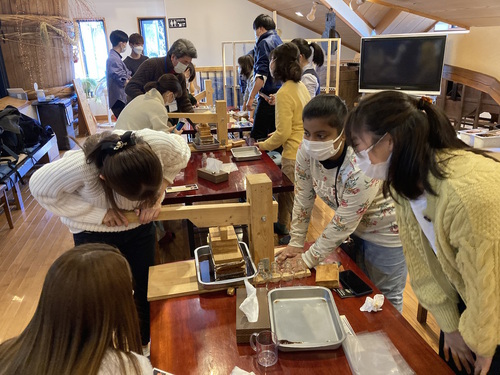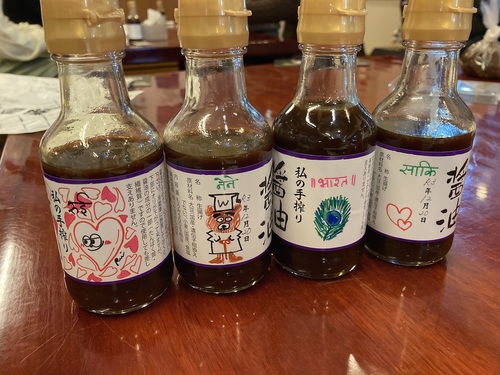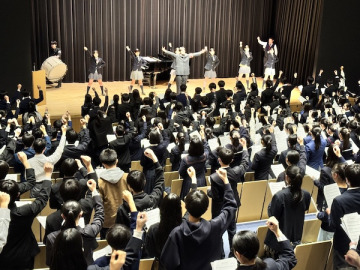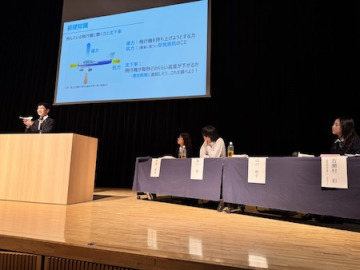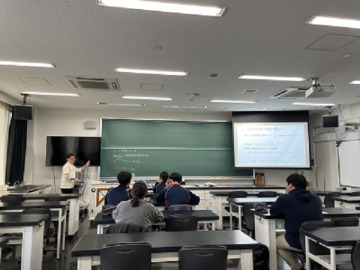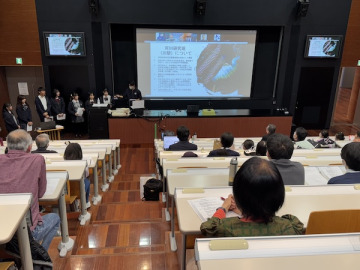12月20日(月)、留学生リシタさんを含む学院生13人が参加する「醤油と絹をめぐるバスツアー −留学生と共に学ぶ北関東の風土と産業−」を実施しました。午前中は埼玉県神川町の「ヤマキ醸造」で醤油絞り体験学習、午後は群馬県富岡市の富岡製糸場の見学です。
“Soy & Silk Study Tour” was carried out on December 20 with 13 participants including Rishita Singh, an Asia-Kakehashi student from India. The bus tour was designed as a field trip for the participants who signed up for a study project to explore the traditional food culture and silk industry in the Northern Kanto area. As Rishita comes from Varanasi, “the home to one of the largest silk fabric weaving industries in the world,” the participants are invited to discuss the similarity and difference of the two places.
ヤマキ醸造は山間の小さな工場ですが、その製品(味噌・醤油・豆腐など)はクオリティの高さで知られています。水は地元の地下水、材料は国産・有機栽培にこだわっています。
In the morning, the team visited Yamaki Co. Ltd. The soy sauce & miso (fermented soybean paste) brewery is a gem of the Washoku business. Having been enthusiastic about keeping “house-made” tastes since its foundation in 1902, their products (miso, soy sauce, tofu, or pickles) have a high reputation. The company is particular about using mineral water from local wells and using domestic corn & vegetable from organic farms. They are also keen on sharing knowledge and wisdom to promote environmental conservation through their business. The workshop in which the students participated is one of their teaching sessions.
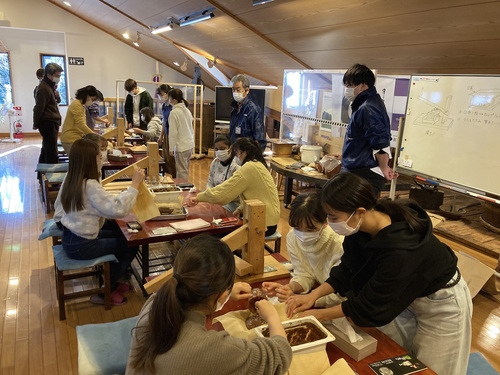
自然の力を生かす「発酵」という技術の伝統と重要性の講義を受けた後、体験学習です。醤油を絞るもとである醪(もろみ)は、味噌と醤油の混じった良い香りです。自分で瓶詰めまで行い、残った醪もお土産にいただきました。
The morning session started with a mini-lecture on fermentation — how microbes act in fermentation and how Washoku culture has been making use of fermented food. The first step of hands-on experience, which followed the lecture, was to enjoy the aroma and taste of moromi (soybeans and wheat malt, fermented and matured). Under the experts’ supervision, the students wrapped the moromi with special cloth for filtering and carefully compressed them to obtain raw soy sauce. Then they bottled the fresh soy sauce for take-away.
- Rishita wrote the teammates’ names in Hindi letters.
体験学習の後は、「糀庵」で有機食材の良さを生かしたランチを堪能。食後は豆腐ソフトクリームをデザートにいただくメンバーも。
After the workshop was the time to enjoy lunch in one of Yamaki’s café. The team appreciated tasty meals made with organic food. Some members couldn’t resist trying “tofe soft ice cream,” and they were happy with the healthy dessert!
午後は世界遺産「富岡製糸場と絹産業遺産群」の中心である富岡製糸場を見学。英語ガイドさんのお世話で、普通は見逃してしまうような見所も教えていただきました。
The second destination was “Tomioka Silk Mill and Silk Industry Heritage Group,” one of the World Heritages. The team visited Japan’s first modern silk factory established in 1872. The students explored the brick buildings and advanced facilities for the workers, with the help of an expert guide.
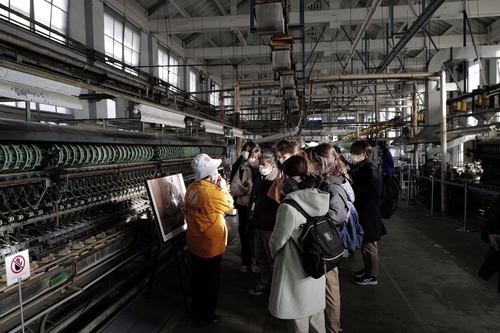
メンバーは現在、事後学習に取り組んでいます。リシタさんからは出身地Varanasiの絹産業は誇り高い伝統がありながら後継者を育てる苦労に直面していること、風土と精神文化に根ざした菜食の習慣などの報告がありました。
Varanasiと北関東の風土と産業の学習はまだ続きます。
The students have been working on a follow-up project to revisit what they saw and felt in the field trip. Rishita has contributed two short writings for the team. Her essay on Varanasi silk tradition explains why and how the city has become famous for the artistic silk weaving. She also refers to the fact that the traditional hand-woven silk “faces a stiff competition from the powerloom silk industry”. Another contribution from Rishita is on “Indian fooding habit.” She explains how geography, religion and ethics are related to Indian food culture.
Collaborative learning between the team members continues.

